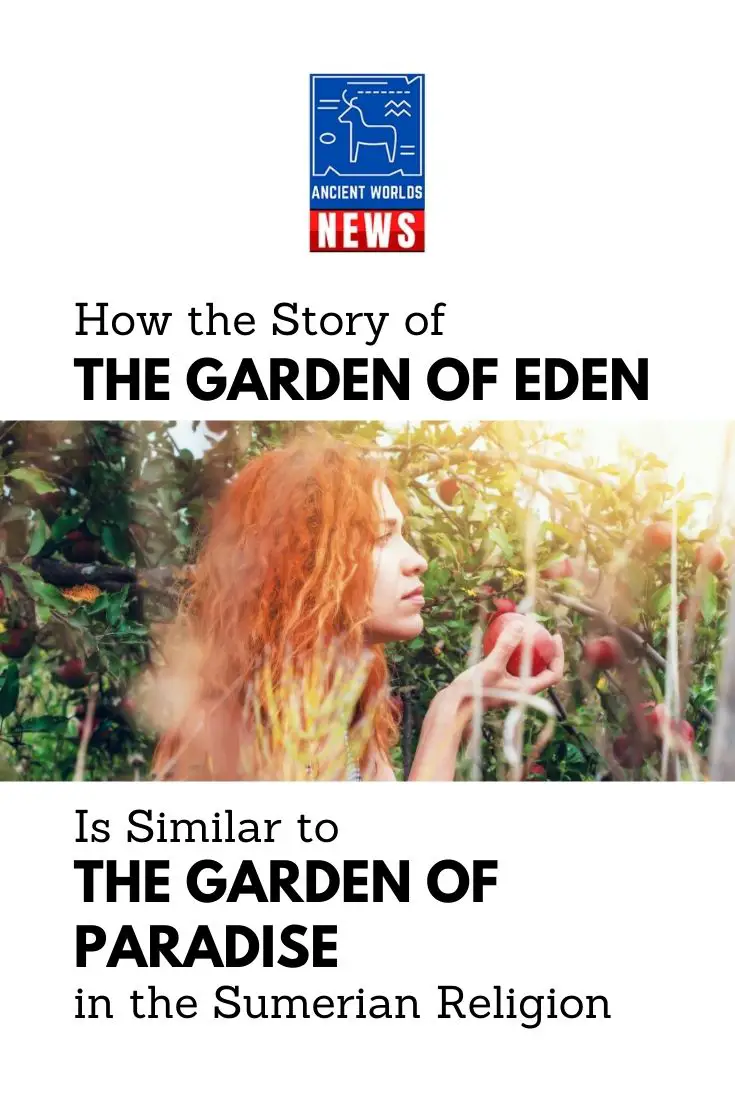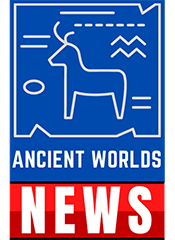The story of the Garden of Eden in the Bible and that of the Garden of Paradise in the Sumerian religion share many similarities. In both, the characters are the same gender, and they commit similar mistakes. Surprisingly, the punishment is also very similar.
The Garden of Eden
In the Bible, when Adam and Eve were placed in the Garden of Eden, God gave them permission to eat from any plant, except from the one in the center of the garden. According to the Bible, the Garden of Eden was a beautiful place with all kinds of fruits.

God told Adam and Eve that, if they ate from that tree, they would die. However, one day when Eve was roaming alone, the serpent approached her and asked her whether it was true that God asked them not to eat from one of the trees in the garden.
Eve confirmed that it was true. The serpent told her that, by eating from that tree, they would not die; he said that they would instead become like God and be able to differentiate good from evil. When Eve heard that, she decided to eat the fruit.
After eating the fruit, she took some to her husband because it was sweet. Adam also ate the fruit, and immediately afterward, they realized that they were naked and put together fig leaves to cover up.
Then the two heard God roaming in the garden, and they decided to hide. When God asked them where they were, they said that they were naked. He then asked them whether they had eaten from the tree that he had asked them not to. Adam told God that the woman he created for him made him eat the fruit. Eve blamed the serpent for tricking her.
God was so angry at them for their disobedience that he threw them out of the Garden of Eden. Initially, God had intended for human beings to be immortal, but he changed his mind and gave human beings a death sentence instead.
He also told Adam that they would have to work hard to get food and that women would experience pain during childbirth. God also created enmity between man and the serpent.
The Garden of Promise
In the Sumerian religion, we are told about Ninhursag and Enki, and how, at the beginning of the world, the two were placed in a garden known as Dilmun. This was the Garden of Paradise. Ninhursag, who was believed to be a goddess, had taken a winter break to rest after she was done creating.
Enki, the god of fresh water, magic, and wisdom, found her there and fell in love with her. They spent most of their time together and Ninhursag got pregnant. She gave birth to a girl, and they named her Ninsar. Ninhursag blessed her daughter with accelerated growth, and so Ninsar was to grow into a beautiful woman within nine days.
When it was spring, Ninhursag had to return to Earth to carry out her duties. However, Enki and their daughter remained. Enki started to miss Ninhursag, and one day, when he saw Ninsar passing by the marshes, he mistook her as Ninhursag and seduced her.
Ninsar became pregnant with a girl whom she named Ninkurra, meaning “goddess of the mountain pastures.” In nine days, she grew into a beautiful woman. Enki then seduced Ninkurra, and she gave birth to a daughter named Uttu.
Uttu was also made pregnant by Enki. He eventually realized that all of these women would not measure up to his wife and he returned to his work.
Uttu felt that her affair with Enki was not right, and she asked Ninhursag for help. She told her everything that had happened. Ninhursag advised her to wipe Enki’s seed from her womb. She did as she was told and buried it in Dilmun.
Nine days later, eight plants grew from the earth where the fetus had been buried. By that time, Enki returned with Isimud, his vizier. They passed by the plants and stopped to see what they were. Isimud picked the first one and gave it to Enki.
Enki found the plant to be delicious. Isimud picked the remaining seven and Enki ate them as well. When Ninhursag returned, she realized that Enki had eaten all eight plants. That made her very angry, and she gave Enki a death sentence. She also cursed him and threw him out of the Garden of Paradise and the world.
Enki became deathly ill, and the gods were sad, but none of them could cure him besides Ninhursag and no one would find her. One of her animals (a fox) knew where she was and brought her back.
She rushed to Enki and drew the pain from his body. He became well and repented for seducing the girls and eating the plants. Ninhursag forgave Enki, and they both returned to their duties.
Similarities
Both stories involve a man and a woman. In the Bible, it was Adam and Eve, and in the Sumerian religion, it was Enki and Ninhursag.
In both cases, they are placed in a garden. In the Bible, the garden is Eden, and in the Sumerian religion, it is the Garden of Paradise.
In both situations, the will of a supreme being was challenged. In the Bible, Adam and Eve disobeyed God when they ate from the tree. In the Sumerian religion, Enki knew that it was wrong to seduce the girls, but he still went ahead and did it.
In both stories, disobedience is punished. In the Bible, Adam and Eve were thrown out of the garden. They also lost their immortality. On top of that, they had to work hard for their food since there was no more free fruit. Eve was also told that all women would experience pain while giving birth. God even punished the serpent, who would have to crawl on its stomach from now on. In the Sumerian religion, Enki was cursed and thrown out of the Garden of Paradise.
Summary
In both stories, the garden is described as a beautiful place that has everything a man could want. Other similarities include: a man and a woman who are in love, deliberate sinning, and angry gods. In both, the sinners are punished, and death is part of that punishment.

